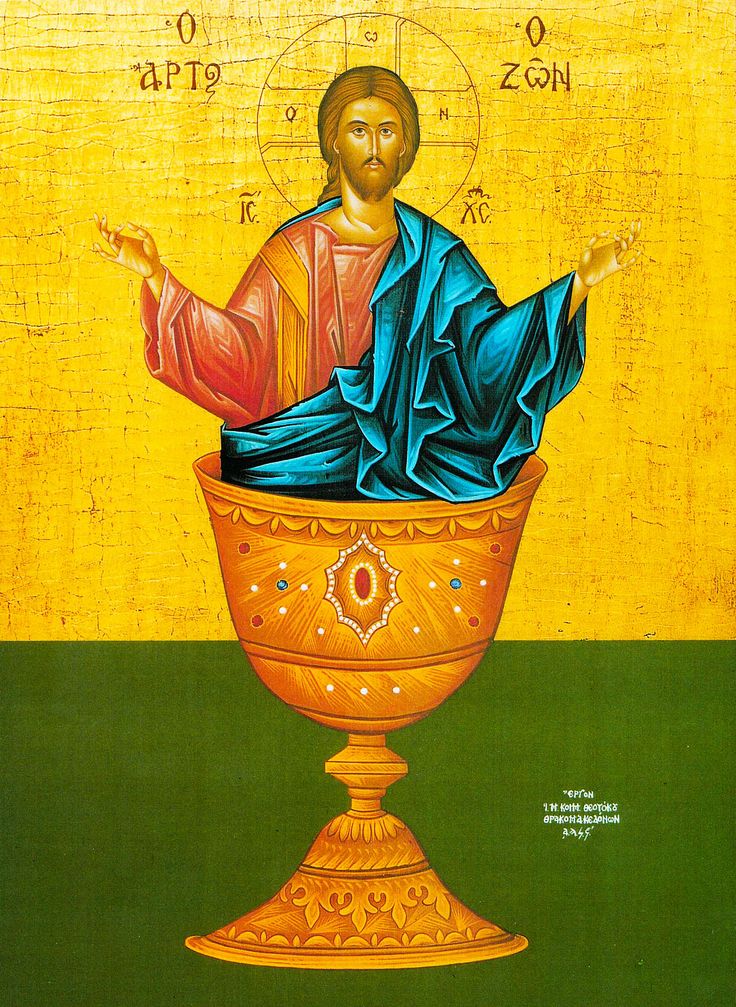A Pastoral Letter from Fr. Predrag on the subject of Frequent Communion
Considering the fact that many have contacted me, concerned for their salvation, with the popular question “How often should one commune?”, and considering the fact that different opinions can be heard on this subject, since every person is a subjective being for whom it is very hard to be objective, I will attempt to answer according to the best of humble abilities, trying to base it on the teachings and tradition of our Holy Orthodox Church, not pretending by this to be infallible in my thinking.
You have asked the question “How often should one commune?” and I begin my answer with a question to you: How often do you need the Lord? Is it a few times a year, or is it every moment of your life? Holy Communion is a true, profound, incomprehensible, pervasive encounter with the Lord, the Lifegiver, the Fountain of eternal life, and thus the holy fathers call it “the medicine of immortality”, and the Lord Himself said: “Unless you eat My body and drink My blood, you have no life in you” (John 6:53). Take note of the grammatical form of these two words [the imperfect in the original languages] which signifies an action, state or event which is ongoing, even as the words are spoken. Frightening words, so frightening that I don’t think we should play around with trite hypotheses of how many times is sufficient: is it three, or maybe four times a year?…
To the question which then often follows: “Are we worthy to ‘frequently’ receive communion, I would once again reply with a question: Are we ever worthy of taking communion? Is there some mathematical formula by which the Lord, and we, can calculate our worthiness? Or does the Lord selflessly give Himself to us in love and mercy as He Himself is Love and Mercy? Such a formula does not exist! Of course, this does not mean that we can live in sin and carelessness for our salvation, relying on the fact that the Lord is merciful and that He loves us. Salvation is realized through God’s mercy and love, but exclusivly in a synergy – cooperation – dynamism – with the Lord and to the Lord and His uncreated powers – His energies. We make the effort to give all of ourselves, from “our” Godgiven energies and talents, battling with our weaknesses and temptations, at times defeating them and at times falling and, with God’s help, standing back up.
Holy Communion, therefore, is necessary to wake us from the slumber of sin (as a hymn from Great Lent advises us: “My soul, my soul, arise! Why are you sleeping? The end is drawing near…”), to strengthen and encourage us for the podvig [heroic spiritual effort] of the Christian life, to awaken the sleepy conscious which will certainly pose the constructive-motivating question “Am I worthy,” but not the destructive form of that question which, under the cloak of a false humility, makes us withdraw from uniting ourselves with the Lord, or that makes us limit ourselves, due to our “unworthiness,” to a few times a year.
The Divine Liturgy is our movement towards the heavenly kingdom in which, suprassing all categories of time and space, we unite ourselves with the Lord and His saints. It is pricesely in this manner that the venerable and newly glorified, but always celebrated, pan-Orthodox teacher Abba Justin of Celije announced: “The Divine Liturgy gathers all the past into the present, and travels to the future which ends in eternity.” Anticipating and foretasting that eternity, that joy of the age to come, that unending day of the Lord through the Divine Liturgy (through our uniting ourselves with the Lord), since we have communed – we return to the world, to this valley of sorrow, to announce and give witness to that joy and experience, just as we sing in the liturgical hymn immediately after Holy Communion: “We have seen the true light, we have received the heavenly Spirit, we have found the true faith, worshiping the undivided Trinity Who has saved us.” The Divine Liturgy then is not a theatrical piece which we attend that it might prompt us to prayer, but it is an invitation to the Kingdom, a Mystery in which and by which we truly live “with living life”, and not merely exist.
Subsequently, at the Lord’s invitation that we approach with fear and faith, we shouldn’t excuse ourselves with some profane reasons, lest we be like those evil and lazy servants who, though invited, did not go to the wedding feast of the king’s son. Of course, we must be careful and should not forget that such a celebration requires a true “wedding garment,” woven from love and Christian virtues of humility, patience, forgiveness, mercy, mildhartedness and, of course, by obeying the Church’s commandment of fasting as well as by participating in the Holy Sacrament of Confession and Repentance.
To conclude: the measure of communing is the measure of your love for the Lord, your yearning for the Loving Being, an indicator of your need for Him, and with that, your desire to please Him by following His commandments, and so revealing Him in them; doing all of this seeking nothing in return but to be with Him and in Him. All other ideas, I would dare say, are deceptions of the father of lies, by which he wants to force us to turn from the Lord by our own free will and remain deaf to His invitation. Repent, correct your lives, love the Lord by following His commandments, lifting yourselves to the heights of Christian nobility for “Noblesse oblige” (“Nobility obliges”).
May your communion be to the health of your bodies and the salvation of your souls.
Fr. Predrag Bojovic



Dobro uradjen posao